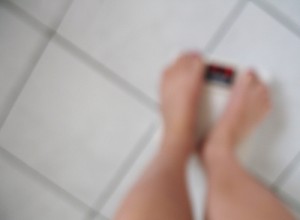 I used to be the queen of excuses and procrastination. Whether I wanted to lose 10 pounds, start saving, or accomplish a lifelong goal, today was never the right day for it. I always made lofty plans for the future, but I didn’t realize that when it comes to accomplishing your goals, tomorrow is no good. The only way to make progress is to start today.
I used to be the queen of excuses and procrastination. Whether I wanted to lose 10 pounds, start saving, or accomplish a lifelong goal, today was never the right day for it. I always made lofty plans for the future, but I didn’t realize that when it comes to accomplishing your goals, tomorrow is no good. The only way to make progress is to start today.
Constantly making excuses for why tomorrow is better is a good way to prevent yourself from ever making progress at all. The day I realized that my temporary delays were holding me back, and setting a goal for tomorrow results in a never-ending delay, I discovered the key to achieving all of my goals.
Here’s how to get motivated if you’re battling excuses:
Tell yourself enough is enough.
Have you been talking about losing that last 10 pounds (or 50) for the past two years, but always have good reason to wait? “My diet starts after this weekend,” or “As of January 1, I am on a diet,” were my mantras for years. One day I finally said enough is enough. My diet started that minute, and 6 months later I was 40 pounds thinner. Enough is enough. It’s time to get started, because there will always be a reason to wait.
Visualize your goal.
Now that you’ve gotten started, you’re at the hardest part: you know what you want, but you haven’t started to see the motivating results. Now is the time when you need to remind yourself of how sweet it will be when you’ve accomplished your goal. It helps me to remind myself with a little symbol for what I want. Whether it’s your wedding photo from when you were at your ideal weight or a picture of the dream house you’re saving to buy, give yourself a reason to push through the tough part before you start seeing your progress.
Track your progress.
Once you do start to see progress, it’s essential that you do whatever it takes to maintain your motivation. When I was losing weight, I weighed myself daily and took pictures in my bathing suit so I could compare and see the changes. If you’re saving money or paying off debt, tally your total saved or paid every week and figure out a percentage for your progress. Seeing that percentage increase with every dollar will keep you going.
Good luck achieving your goals, and remember, the only way you’re going to get there is if you get started right now!



